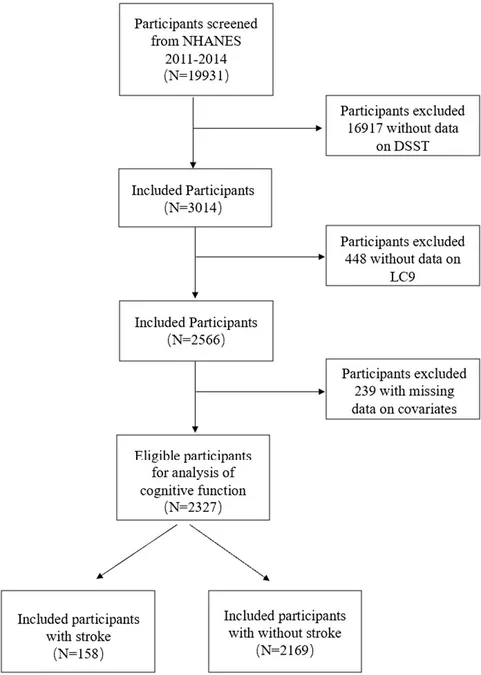
Unlocking Brain Health: How Life’s Crucial 9 Could Lower Your Stroke Risk
2025-05-31
Author: Li
Brain Health in the Balance: Understanding the Risks
Cognitive decline and stroke are emerging as significant public health concerns, particularly among our aging population. These conditions threaten quality of life and escalate healthcare costs, making it essential to identify factors that can help mitigate these risks. Recent insights from the American Heart Association’s revamped health framework have introduced a game-changer: Life’s Crucial 9 (LC9). This innovative approach includes mental health metrics, particularly depressive symptoms, broadening the scope of health assessments.
Study Insights: Harnessing NHANES Data
Drawing data from the National Health and Nutrition Examination Survey (NHANES) between 2011 and 2014, a study analyzed 2,327 participants to explore how LC9 scores correlate with cognitive function and stroke risk. Researchers employed various statistical models examining relationships amongst demographic and health factors, providing robust insights into how mental health intersects with physical health.
Stunning Results: Higher LC9 Scores Equal Better Outcomes
The study unveiled remarkable findings: higher LC9 scores consistently correlated with superior cognitive function and significantly lower odds of stroke. Participants showcasing elevated LC9 ratings demonstrated better performance on cognitive tests, suggesting a direct link between mental well-being and brain performance. Specifically, those with better LC9 scores achieved higher results on the Digit Symbol Substitution Test (DSST), indicating sharper cognitive abilities.
The Nonlinear Connection: Understanding Stroke Risk
A closer look through the lens of Restricted Cubic Spline analysis revealed a non-linear correlation between LC9 scores and stroke likelihood. Notably, the steepest reductions in stroke risk occurred at lower LC9 scores, leveling off as scores reached 70 and above, signaling substantial protective effects against strokes with improved mental health metrics.
Connecting the Dots: Mental Health Matters
This study's revelations reinforce the critical need to integrate mental health assessments into cardiovascular health evaluations. By addressing the mental health challenges revealed by LC9, healthcare professionals can enhance overall health projections and stroke prevention strategies. As depression becomes a more recognized risk factor for cognitive decline and stroke, the imperative to incorporate these elements into health frameworks grows ever clearer.
The Future of Health Assessments: Embracing Comprehensive Strategies
While this groundbreaking study advocates for the value of the LC9 framework, it also signals the necessity for future research to continue examining the intricate relationships between mental health, cognitive function, and stroke. Given the increasing prevalence of cognitive issues and stroke within our society, expanding understanding and interventions in these interrelated areas is paramount. Let's address these silent threats with informed, holistic health strategies for a healthier tomorrow.




 Brasil (PT)
Brasil (PT)
 Canada (EN)
Canada (EN)
 Chile (ES)
Chile (ES)
 Česko (CS)
Česko (CS)
 대한민국 (KO)
대한민국 (KO)
 España (ES)
España (ES)
 France (FR)
France (FR)
 Hong Kong (EN)
Hong Kong (EN)
 Italia (IT)
Italia (IT)
 日本 (JA)
日本 (JA)
 Magyarország (HU)
Magyarország (HU)
 Norge (NO)
Norge (NO)
 Polska (PL)
Polska (PL)
 Schweiz (DE)
Schweiz (DE)
 Singapore (EN)
Singapore (EN)
 Sverige (SV)
Sverige (SV)
 Suomi (FI)
Suomi (FI)
 Türkiye (TR)
Türkiye (TR)
 الإمارات العربية المتحدة (AR)
الإمارات العربية المتحدة (AR)